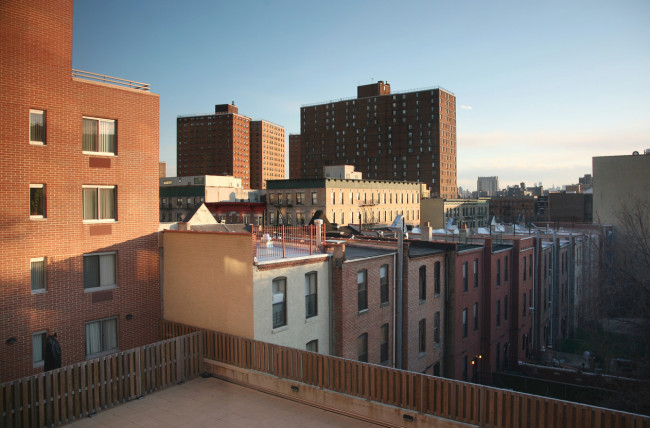By intervening early, a new program aims to help prevent eviction for NYC tenants
- After a successful trial run, Home 4 Good is expanding to assist 2,500 tenants over the next three years
- Landlords pay about $2,500 per tenant, far lower than the cost of evicting a tenant, an estimated $12,000

Home 4 Good works with tenants who are behind on their rent, connecting them to short-term emergency rental assistance like the city’s One Shot Deal and longer-term housing subsidy programs CityFHEPS and Section 8.
iStock
After a successful test run, an eviction prevention program is expanding with the goal of helping 2,500 New York City tenants stay in their apartments and reducing losses for landlords.
The program Home 4 Good works with tenants who are behind on their rent, connecting them to short-term emergency rental assistance like the city’s One Shot Deal, longer-term housing subsidy programs CityFHEPS and Section 8 and other supports, including financial coaches.
The test run of Home 4 Good helped 112 tenants avoid eviction and recovered nearly $1.1 million for housing provider L+M Development Partners, said Joscelyn Truitt, vice president for empowerment at RiseBoro Community Partnership, which serves as the program’s project manager.
Riseboro and L+M Development Partners, in addition to affordable housing stakeholders Enterprise Community Partners and HELP USA, with support from Maycomb Capital and Trinity Church, are backing the expanded program. It will partner with six to eight affordable housing landlords across NYC over the course of three years. (If you’re an affordable housing landlord and want to learn about participating in the program, you can reach out to the team at Riseboro.)
Most affordable housing landlords have a significant number of tenants who are in arrears, Truitt said.
The goal of Home 4 Good is to intervene early, before a landlord takes a tenant to court to evict them. By that time, back rent can climb into tens of thousands of dollars, Truitt said.
“Eviction prevention is more affordable and better for renters and the city of New York,” she said. “Arrears are much higher by the time an eviction case is resolved,” she said.
How Home 4 Good works
The program, which was conceived during the height of the pandemic, involves landlords entering into a contract with RiseBoro Community Partnership for a number of tenants. Landlords then refer tenants directly to the program, and Home 4 Good reaches out to assist them. Landlords are billed twice a year, and only pay a fee when rent is recovered.
The cost to landlords is approximately $2,500 per tenant—far lower than the cost of a formal eviction process, an estimated $12,000 per tenant.
“If we work with 100 tenants, and we assist 80 of them, the landlord pays for 80,” Truitt said. “So the investment is not only on the back-end but only funds outcomes that are positively achieved."
Private investment from Maycomb Capital is getting the program off the ground. Philanthropic support for Home 4 Good also includes a loan guarantee from Trinity Church and funding from Wells Fargo.
Preventing a recurring problem
Many low-income NYC households are rent burdened, meaning they spend more than 30 percent of their income on rent. While NYC renters are qualified for affordable housing on the basis of their income, job loss or the death of a wage earner can create a financial crisis and put other household members at risk of eviction.
"In the summer of 2024, 13 percent of all renter households in the New York City metro area were at risk of eviction due to rent arrears,” said Matthew Murphy, executive director of the NYU Furman Center.
Home 4 Good housing “navigators” work with tenants over the course of a year, getting them past the crisis and helping them not fall behind again by providing financial coaching on building good credit or connecting them to job or education resources.
You Might Also Like




























